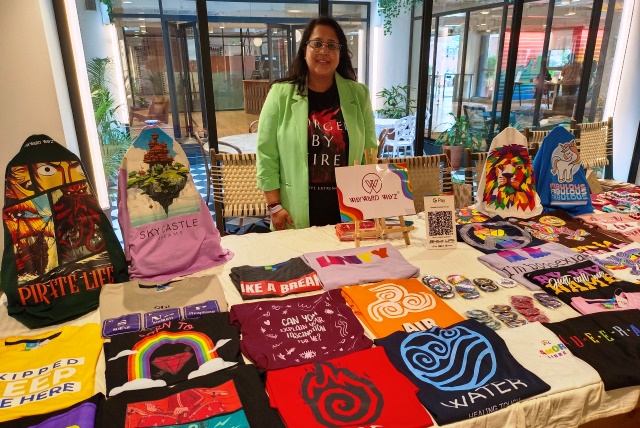Apeksha Roy, an entrepreneur from the LGBTQ+ community, urges the start-up industry to look beyond profits and support platforms that amplify unheard voices. Her views:
I identify as queer, and my pronouns are they/them. I founded Wayward Wayz, one of India’s upcoming expressive fashion brands, which also recently got incubated at IIMV Field’s Naariprenuer for her program. Growing up, I was an introvert, grappling with a speech impairment, I didn’t always feel like I could express myself through spoken words, and I struggled with understanding who I was and what made me different. The breakthrough came when I discovered stories. I wasn’t a natural communicator, but I was good at writing, so that became my outlet and it helped me understand myself better.
As I began writing more, I realised that there were so many people, not just from the LGBTQ+ community but also those who are neurodivergent or specially-abled, who struggled to express their voices. They often didn’t have the platform to share their stories, or their voices were lost in societal norms. This realisation sparked the idea for Wayward Wayz, a brand where people could wear their feelings on their shirts—whether it’s a quote, a message, or a unique design. If someone noticed your shirt and asked, “What does it mean?”, you could proudly explain what it represents for you.
But starting a brand like this wasn’t easy. It took a massive leap of faith and a chunk of our savings because we are a bootstrapped business. There was a phase when we questioned ourselves—were our designs good enough? Would they sell? The first few months were tough; we had no sales. But everything changed when we collaborated with Rainbow Bazaar. In the first week, almost every design sold out.
ALSO READ: ‘LGBTQ Pride Continues To Grapple With Prejudice’
This journey is not just about personal expression—it is about creating a platform for those whose voices are often unheard. I want to help people to express themselves without saying a word.
As an entrepreneur, I have faced unique challenges. When we present our brand at general events or try to engage with angel investors or VCs, there’s often a laid-back response when they hear “LGBTQ+ clothing.” It’s like we are somehow perceived as outsiders. It’s frustrating because I am not just here to earn a profit—I am here to give back to the community.
All of our merchandise is made in India, and while I don’t make much profit, I am proud to contribute to the country’s GDP. I don’t source materials from China just for the sake of profit; I believe in supporting local industries and creating meaningful work. I call myself a “Queerpreneur”—an entrepreneur from the LGBTQ+ community—and I want to urge the startup community and investors to understand that we are not here to push a niche agenda or sell a product for the sake of profit. We are here to create a platform for expression and inclusivity, and we need support to make this vision a reality.
The startup world needs to recognise the value in diverse, inclusive businesses, especially those led by marginalised communities. We are not just pushing for market share—we are advocating for a world where everyone has a chance to be seen and heard, and their stories, whether spoken or worn, can make an impact.
As told to Mamta Sharma
